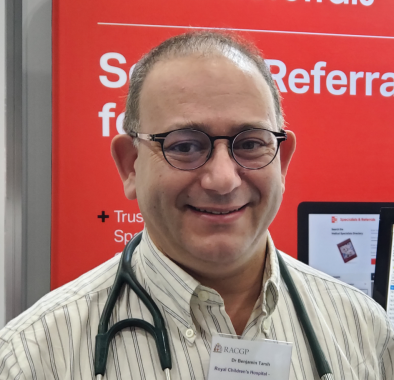I’m a GP who loves Britain – so much so, I’m trying to move back.
I’m also British-born and a British citizen – but one thing I don’t love is its bureaucracy, which is both unnecessarily excessive and stopping me, a highly-qualified doctor, from practising here.
Despite the chronic shortage of GPs in the UK and anticipated worst-ever winter for the NHS, I’m being barred from returning home to contribute to the health service.
Growing up, I always aspired to become a doctor, but various hurdles – including struggles with dyslexia and epilepsy – relegated this to a distant dream. But ultimately not even a career in international business management could push it to one side, so at 30, I decided to make the jump. I just didn’t anticipate that the jump would see me landing Down Under.
After starting from scratch and gaining the specified A-Levels, I’d naively thought that finding a medical school would be the easy part. But while securing a place in the UK at my age proved almost as challenging, it was nothing that looking further afield couldn’t solve, ultimately leading me to Newcastle, Australia.
I’ve spent most of the last 20 years as a GP. I’m a medical educator teaching GP registrars and students from the Universities of Melbourne and Monash, and a medical examiner, including of fellowship candidates at the Royal Australian College of General Practice (the Australian equivalent of the RCGP). I’ve also acquired additional sub-specialist qualifications and skills in psychological counselling, sexual health, HIV and gender medicine.
But now, as my parents are unwell, I’m aiming to return, and I’m noticing history repeating itself – albeit from a slightly different angle. Once again, the regulatory bodies are placing impossible obstacles along the path of ‘equivalence recognition’ and this time, they won’t automatically recognise my qualifications, in the way they would if I’d trained in an EU country.
The only way around this is to gather hundreds of pages of evidence, demonstrating my work in Australia, and submit these to the GMC, who would in due course pass them onto the RCGP.
Yet Australian Privacy Law has thrown another spanner in the works. One of the clinics I worked at for many years has refused to permit me access to the clinical records of my patients there.
They have no legal obligation to provide me with such access, even with appropriately redacted clinical material.
Hancock doesn’t address the insuperable legal hurdle facing clinicians from countries that have strong patient privacy laws
When I appealed directly to the GMC, I was told that EU law meant I couldn’t be granted automatic recognition, despite the details of my case – yet Ireland, for instance, automatically recognises specialist Australian GP qualifications.
To further rub salt in the wound, I took a sabbatical in the UK during the last couple of years, completing an MA in Medical Ethics and Law at King’s College London, with my thesis on commissioning and resource allocation within the NHS.
During this period, I thought I might have stumbled across a route towards answers, upon taking the case to my constituency MP, Jeremy Hunt, who was also then the health secretary. However, I wasn’t granted a meeting, or even an appropriate written reply.
I’m feeling trapped in limbo, and utterly frustrated – particularly given that the BMA and RCGP have urged the Prime Minister to focus on recruitment, while, elsewhere, over 150 GPs from overseas have been recruited to the NHS by the International GP Recruitment Programme.
Whilst I can recognise the positive intentions of health secretary Matt Hancock, he doesn’t detail which new and substantive reforms are to be put in place, nor how quickly, to further minimise the bureaucracy that confronts overseas-trained GPs and other specialists.
Furthermore, he doesn’t address the insuperable legal hurdle facing clinicians from countries that have strong patient privacy laws.
Without a solution to this problem, the UK will only be able to recruit clinicians from countries that have lower legal standards than those to which the UK and most Western countries adhere.
Whilst reducing visa issues is helpful, he doesn’t address the issues with obtaining Certificates of Equivalence Registration and the reams of documentary proof needed to obtain this key step to enable one to work independently in the UK.
For the sake of the NHS – whether its patients or overwhelmed staff – let’s hope the bureaucratic reforms address these issues over which I have raised my concerns.
However, I won’t believe that adequate reforms are occurring until I hear from the GMC, RCGP and Government that for countries such as Australia, which UK authorities have assessed as having systems and training commensurate to those of the UK, all that should be required to obtain a Certificate of Equivalence Recognition is the provision of documentation from the appropriate Australian Medical Regulatory demonstrating that the clinician is duly trained, registered, currently practising medicine and of good standing.
Dr Benjamin Tarsh is a GP in Victoria, Australia
Pulse October survey
Take our July 2025 survey to potentially win £1.000 worth of tokens














